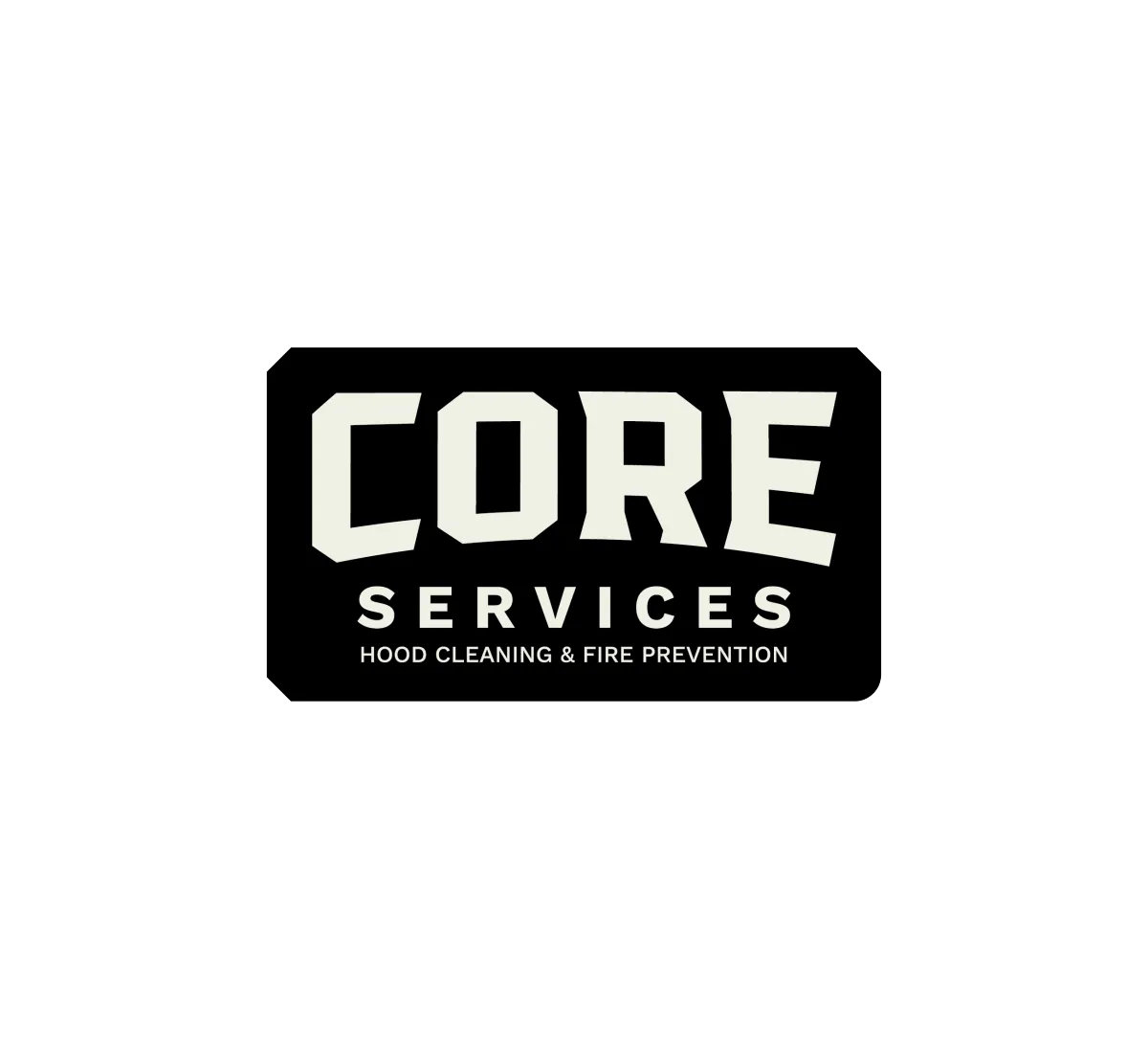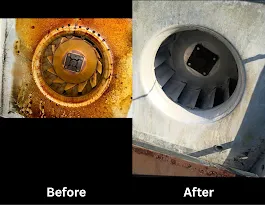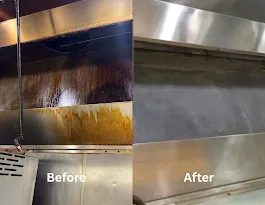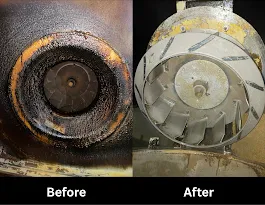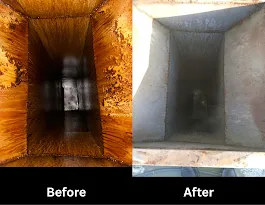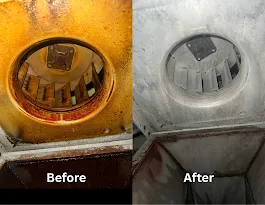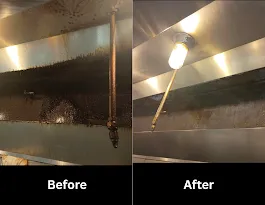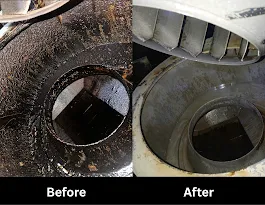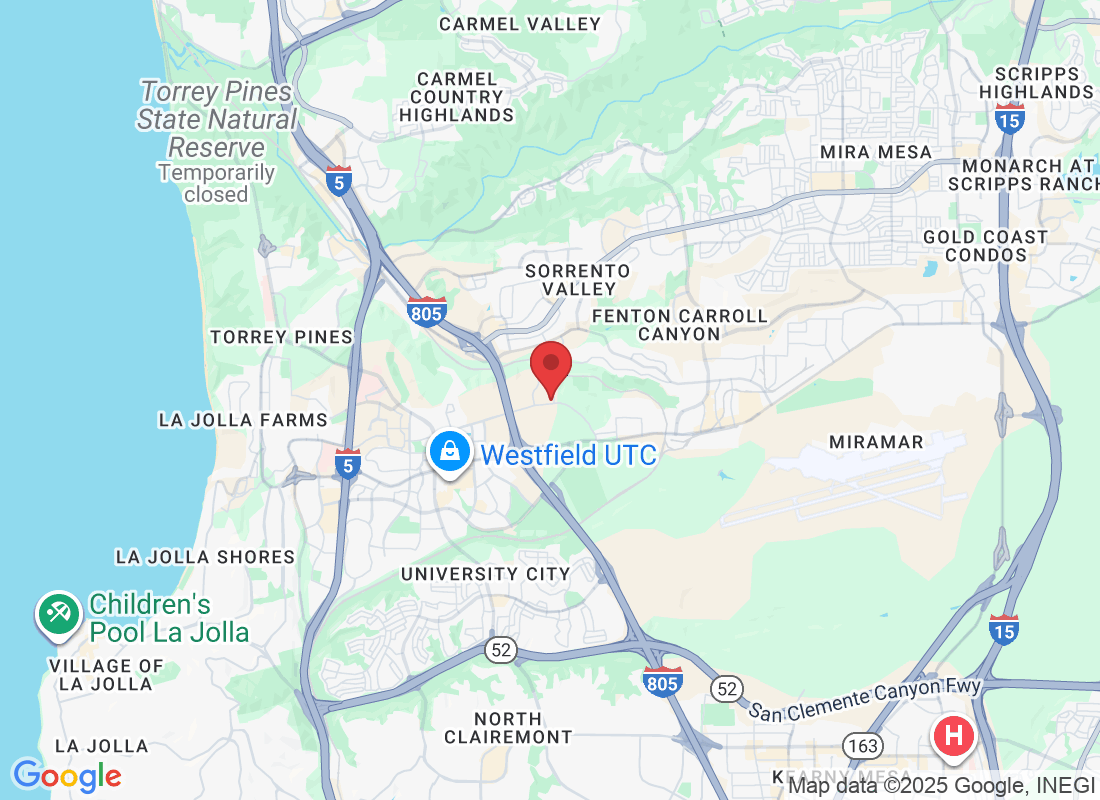PROFESSIONAL COMMERCIAL HOOD CLEANING SERVICE
San Diego's Premier Hood Cleaning Service
Keeping Your Kitchen Fire-Safe & Protected since 2024
Trusted by 100+ Restaurants Across San Diego County
⭐️ 30+ 5 Star Reviews on Google
✔️ NFPA 96 Certified
🔥 Fully Licensed and Insured
📞 24/7 Emergency Service
Check out all of our different services
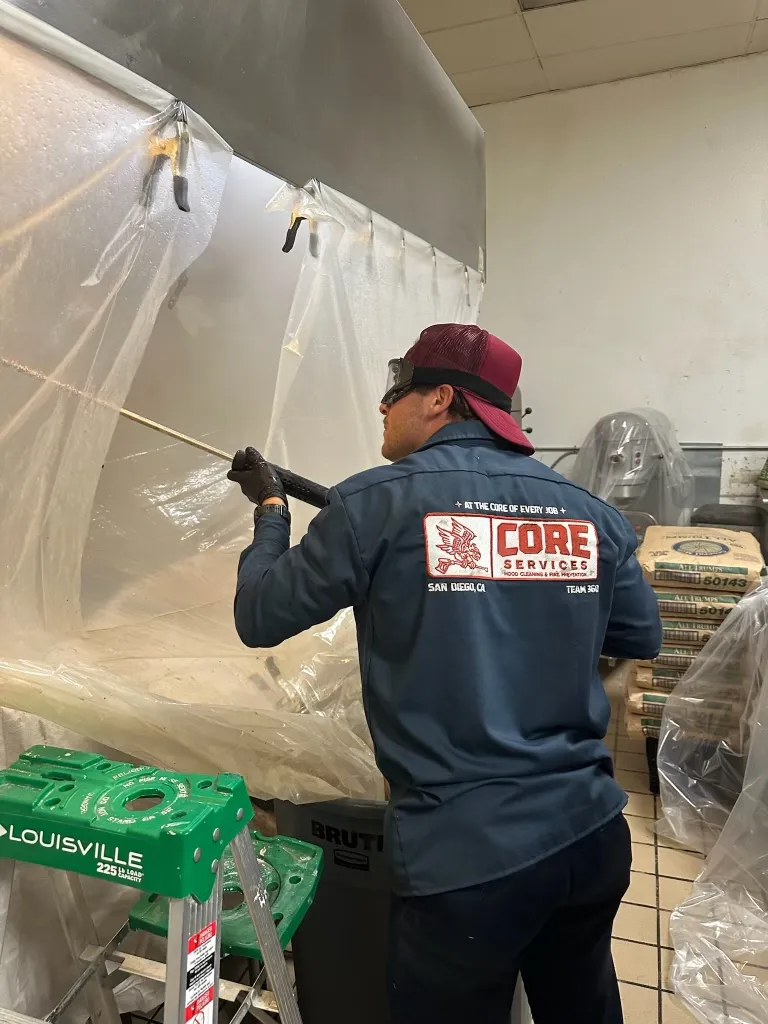
Professional Hood Cleaning San Diego Service
Core Services specializes in professional hood cleaning in San Diego - providing full-service commercial kitchen exhaust hood system cleaning throughout San Diego County.
What is the Core Hood Cleaning Package?
✅ Hood Interior & Exterior Cleaning
✅ Plenum & Grease Duct Cleaning
✅ Exhaust Fan Cleaning
✅ Interior & Exterior Hood Polish
✅ Hood Filter Degreasing & Cleaning
✅ Before & After Photos
✅ Customer Portal Access
✅ Free Inspections
✅ Free Re-Services
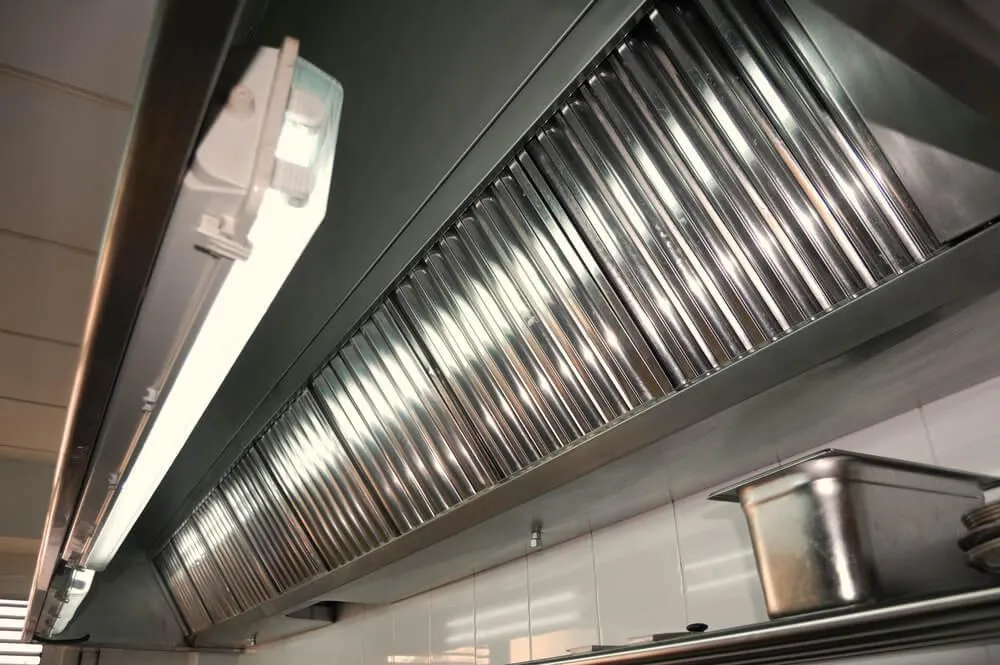
San Diego Filter Exchange Program
Grease filters are your first line of defense — and one of the most commonly neglected. Our Filter Exchange Program serves restaurants throughout San Diego, Mission Valley, Pacific Beach, Del Mar, Hillcrest, and surrounding areas with clean, sanitized filters on a rotating schedule.that keeps your kitchen in compliance and your hood system running efficiently.
What is the Core Filter Exchange Program?
✅ The exchange of dirty, greasy filters with clean ones.
✅ This helps to maintain fire safety compliance and operational efficiency.
✅ Your exchange frequency is either: weekly, bi-weekly, or monthly - based on your restaurant’s fuel type and cooking volume.
Why Choose Core?
Built on Work Ethic. Backed by Execution.
We’re not just 'hood cleaners' - we’re San Diego's trusted partners in keeping your kitchen safe, fire-code compliant, and running at full capacity. We started Core after growing up in the restaurant business and we've built our service around what we always wanted as operators. Rooted in family values, Core was built to bring relentless service, honesty, and professionalism to commercial kitchens throughout San Diego. With over 100 restaurants served and 30+ five-star reviews, Core Services has become San Diego's trusted hood cleaning company for commercial kitchens that demand excellence.
Who We Serve:
Commercial Hood Cleaning Throughout San Diego County
San Diego Restaurants
From downtown San Diego to Oceanside, our hood cleaning services serve restaurants of all sizes throughout San Diego County
Bars & Breweries
Craft breweries and bars throughout San Diego County
Schools & Hospitals
Institutional kitchens across San Diego need reliable hood cleaning
Hotels & Resorts
San Diego's hospitality industry trusts Core for commercial kitchen maintenance
Commercial Commissaries
Large-scale food production facilities in San Diego
Food Trucks
Mobile food vendors operating throughout San Diego
We proudly provide commercial hood cleaning services throughout:
Hood Cleaning Coverage Throughout San Diego County
Downtown San Diego
Mission Valley
Pacific Beach
Hillcrest
La Jolla
Del Mar
Encinitas
Carlsbad
Chula Vista
National City
Solana Beach
Cardiff
Leucadia
Imperial Beach
Coronado
And all of San Diego County
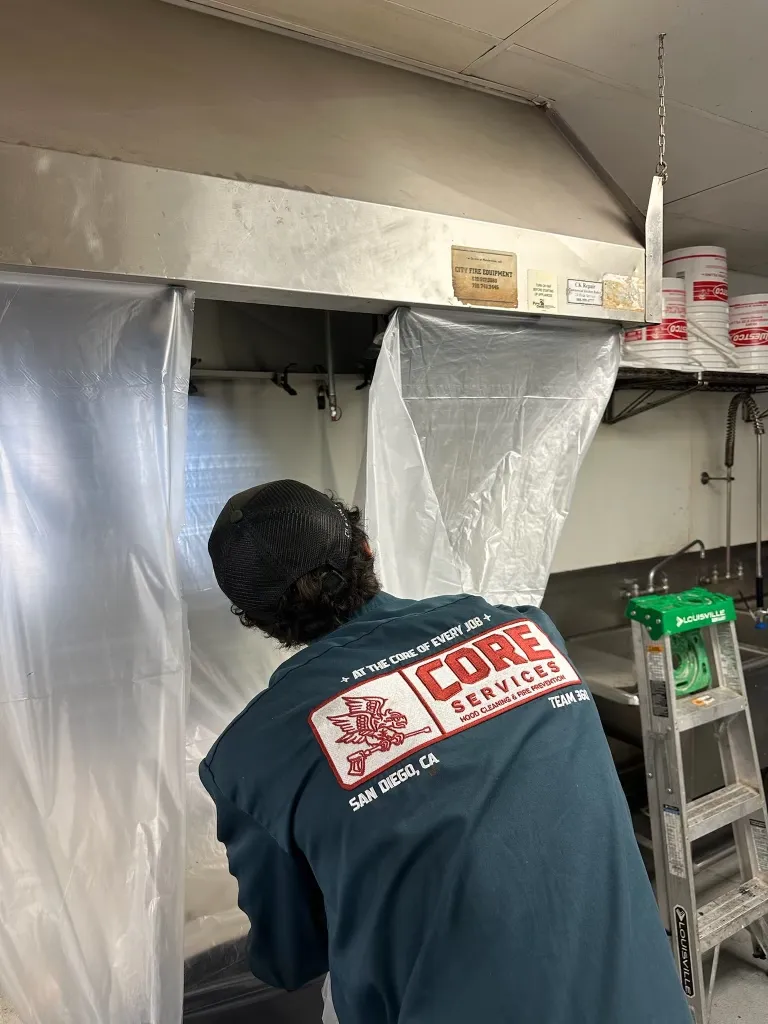
Hood Cleaning Services Throughout San Diego County
Core Services provides professional commercial hood cleaning in every major city across San Diego County:
No matter where your commercial kitchen is located in San Diego County, Core Services provides same-day hood cleaning service with 24/7 emergency response.
Click Here to Schedule Hood Cleaning Service Now
North County Hood Cleaning:
- Hood Cleaning Oceanside: Serving coastal restaurants and hotels
- Hood Cleaning Carlsbad: La Costa, Aviara, Bressi Ranch
- Hood Cleaning Escondido: East Valley and downtown
- Hood Cleaning Vista: Shadowridge and Vista Village
- Hood Cleaning San Marcos: College area and Twin Oaks
South Bay Hood Cleaning:
- Hood Cleaning Chula Vista: Eastlake, Otay Ranch, all neighborhoods
- Hood Cleaning National City: Downtown and Harbor District
East County Hood Cleaning:
- Hood Cleaning El Cajon: Fletcher Hills, Rancho San Diego
- Hood Cleaning La Mesa: La Mesa Village, Grossmont area
Central San Diego Hood Cleaning:
OUR WORK SPEAKS FOR ITSELF
See the Core Results
We're Here to Help - 24/7
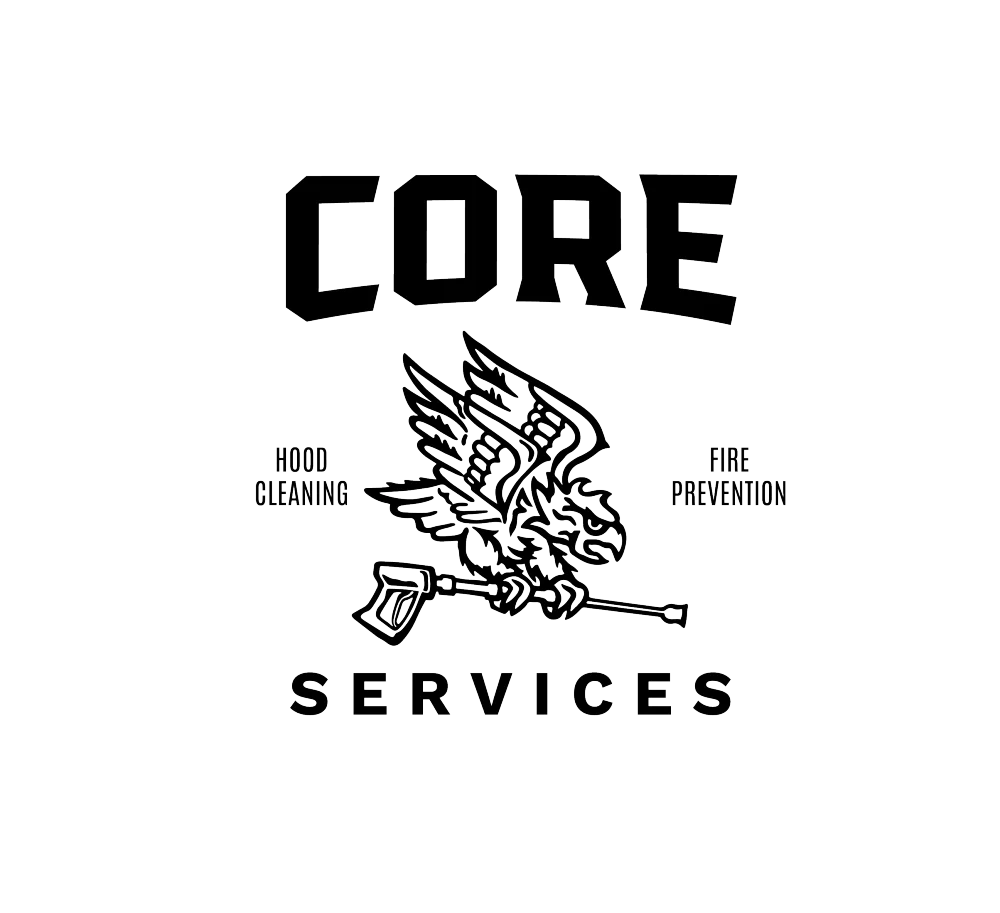
*By submitting this form, I consent to receive marketing and promotional messages, including special offers, discounts, new product updates among others. Message frequency may vary.
📍 Address
Core Services Hood Cleaning 5284 Eastgate Mall San Diego, CA 92121
📞 Phone
(858) 361-2570
24/7 Emergency Service Available
[email protected]
🕐 Hours
Monday - Sunday: 8 AM - 10 PM
Emergency Service: Available 24/7
🗺️ Service Area
San Diego County including: San Diego, Chula Vista, Oceanside, Escondido, Carlsbad, La Mesa, El Cajon, Encinitas, Vista, Santee, Poway, National City, Coronado, Del Mar, Carmel Valley, Imperial Beach, Lemon Grove, San Marcos, Rancho Bernardo, Rancho Penasquitos, Rancho Santa Fe, Cardiff, Leucadia, La Jolla, Miramar, etc.
Core Services Hood Cleaning
5284 Eastgate Mall
San Diego, CA 92121
Phone: (858) 361-2570
Serving All of San Diego and San Diego County
Copyright 2024. All rights reserved
